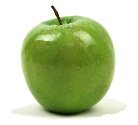



Helping you make healthy choices for you and your family

High Blood Pressure
What Causes High Blood Pressure?
The main cause is narrowing of the arteries (blood vessels). If you stand on a garden hose, the flow of water out of the hose decreases and pressure builds up behind your foot. Similarly, if your artery walls are narrowed, the pressure in your blood vessels increases. If this pressure is not eased over a period of time, your artery walls will become damaged. They will become thicker, and fat (cholesterol) may be deposited. Blood clots may also form at those sites. This condition is known as: atherosclerosis.
Blood pressure is very much affected by your lifestyle. Eating too much refined salt and processed foods and not enough fruit and vegetables; lack of exercise; obesity; smoking; too much alcohol; not drinking enough water; and stress can all play a part in raising your blood pressure. There may also be genetic factors involved, so if a close family member has hypertension, you may have a higher chance of being hypertensive, too.
The main cause is narrowing of the arteries (blood vessels). If you stand on a garden hose, the flow of water out of the hose decreases and pressure builds up behind your foot. Similarly, if your artery walls are narrowed, the pressure in your blood vessels increases. If this pressure is not eased over a period of time, your artery walls will become damaged. They will become thicker, and fat (cholesterol) may be deposited. Blood clots may also form at those sites. This condition is known as: atherosclerosis.
Blood pressure is very much affected by your lifestyle. Eating too much refined salt and processed foods and not enough fruit and vegetables; lack of exercise; obesity; smoking; too much alcohol; not drinking enough water; and stress can all play a part in raising your blood pressure. There may also be genetic factors involved, so if a close family member has hypertension, you may have a higher chance of being hypertensive, too.
How to Reduce Your Risk
There are some key lifestyle changes or improvements that you can make to prevent or lower high blood pressure.
1) Find your ideal weight
Being overweight puts extra strain on your heart, so keeping weight down helps keep blood pressure down. It is easier to maintain weight loss if you lose weight slowly. Eat at least 5 portions of fruit and vegetables daily, reduce your intake of refined salt and processed foods, and avoid foods containing hydrogenated fats.
2) Get active
Regular exercise helps control stress, keeps your blood pressure normal and your weight down. Exercise should be built up slowly and should not be too strenuous. Walking, gardening, cycling, dancing, housework, swimming and golf are all good forms of exercise. Try to take the stairs instead of the lift and park your car further away from your destination. Aim to do at least 30 minutes of exercise three times a week but preferably, every day. Yoga exercises are also known to be an effective way of lowering blood pressure.
3) Limit your alcohol intake
Alcoholic drinks are fattening and can increase your blood pressure. Try to keep your alcohol intake to 3 units a day or less (men) and 2 units a day or less (women). Avoid binge drinking.
4) Do not smoke
Smoking increases your risk of developing high blood pressure as it narrows your arteries and causes added damage to your heart. There are numerous ways to help you give up smoking, from self-help groups and nicotine replacement therapy to more natural methods.
It is recommended that people over 35 have a blood pressure reading and health assessment every 3 years. Any reading between 140/90 and 159/109 should be monitored regularly, at least every 3 – 6 months.
Treatments for High Blood Pressure
There are a variety of treatments to lower your blood pressure. If your blood pressure is above 140/90 and below 159/109 you will be advised to make lifestyle changes. Above that figure and your GP would probably prefer to use medication. Once started, most people will expect to take medication for the rest of their lives. However, you will be closely monitored and should lifestyle changes make significant improvements to your blood pressure readings, you may be able to stop your medication (on medical advice only).
More natural methods include oral or intravenous chelation therapy. It is a safe, natural method which uses a combination of vitamins and minerals, many of which are lacking in our diets today. There are clinics around the country where qualified health practitioners administer this treatment.
Nutrients which have been found to be beneficial to cardiovascular health are Vitamins A, C, D, E, B1, B3, B6, & B12, Biotin, Inositol, Calcium, Magnesium, Potassium, Selenium, Copper, Vanadium, Co-enzyme Q10, Grapeseed extract, the amino acid L-arginine and Essential Fatty acids found in plant oils.
There are some key lifestyle changes or improvements that you can make to prevent or lower high blood pressure.
1) Find your ideal weight
Being overweight puts extra strain on your heart, so keeping weight down helps keep blood pressure down. It is easier to maintain weight loss if you lose weight slowly. Eat at least 5 portions of fruit and vegetables daily, reduce your intake of refined salt and processed foods, and avoid foods containing hydrogenated fats.
2) Get active
Regular exercise helps control stress, keeps your blood pressure normal and your weight down. Exercise should be built up slowly and should not be too strenuous. Walking, gardening, cycling, dancing, housework, swimming and golf are all good forms of exercise. Try to take the stairs instead of the lift and park your car further away from your destination. Aim to do at least 30 minutes of exercise three times a week but preferably, every day. Yoga exercises are also known to be an effective way of lowering blood pressure.
3) Limit your alcohol intake
Alcoholic drinks are fattening and can increase your blood pressure. Try to keep your alcohol intake to 3 units a day or less (men) and 2 units a day or less (women). Avoid binge drinking.
4) Do not smoke
Smoking increases your risk of developing high blood pressure as it narrows your arteries and causes added damage to your heart. There are numerous ways to help you give up smoking, from self-
It is recommended that people over 35 have a blood pressure reading and health assessment every 3 years. Any reading between 140/90 and 159/109 should be monitored regularly, at least every 3 – 6 months.
Treatments for High Blood Pressure
There are a variety of treatments to lower your blood pressure. If your blood pressure is above 140/90 and below 159/109 you will be advised to make lifestyle changes. Above that figure and your GP would probably prefer to use medication. Once started, most people will expect to take medication for the rest of their lives. However, you will be closely monitored and should lifestyle changes make significant improvements to your blood pressure readings, you may be able to stop your medication (on medical advice only).
More natural methods include oral or intravenous chelation therapy. It is a safe, natural method which uses a combination of vitamins and minerals, many of which are lacking in our diets today. There are clinics around the country where qualified health practitioners administer this treatment.
Nutrients which have been found to be beneficial to cardiovascular health are Vitamins A, C, D, E, B1, B3, B6, & B12, Biotin, Inositol, Calcium, Magnesium, Potassium, Selenium, Copper, Vanadium, Co-
Disclaimer: The information in this article should not be regarded as medical advice. If you are receiving medical treatment or taking prescribed medication, you are advised to consult your GP or health practitioner before making any changes to your diet or lifestyle.

High blood pressure, also known as Hypertension, affects up to one third of adults in the UK. About half of all people aged over 75 will have hypertension but many will be unaware because there are rarely any symptoms.
What is Blood Pressure?
Your heart is a small but very powerful organ that pumps about 5 litres of blood round your body every minute. Every time your heart contracts, blood is forced at high pressure through a series of blood vessels. When your heart relaxes, between beats, the pressure against your blood vessel walls is at its lowest. The highest pressure (systolic) and lowest pressure (diastolic) can be recorded using a blood pressure measuring device (sphygmomanometer). The two figures are written down like this: 120/80.
Your blood pressure varies from one minute to the next. It will increase with exercise and excitement and decrease when you are asleep. Ideally, your resting blood pressure should be no more than 140/90.
| Your Health Your Future |
| Controversial Ingredients |
| Nutritional State |
| Parent and Child |
| Microwave Ovens |
| Recommended Books |
| Skin Absorption |
| Sodium Lauryl Sulphate |
| Propylene Glycol |
| DEA, MEA, TEA |
| Chemical Calculator |
| Fluoride |
| Aspartame |
| Fluoridation |
| Water Filtration |
| Planning a Pregnancy |
| Pregnancy Care |
| Post Pregnancy Care |
| Amazon Books |
| EBooks |
| About Us |
| Health Services |
